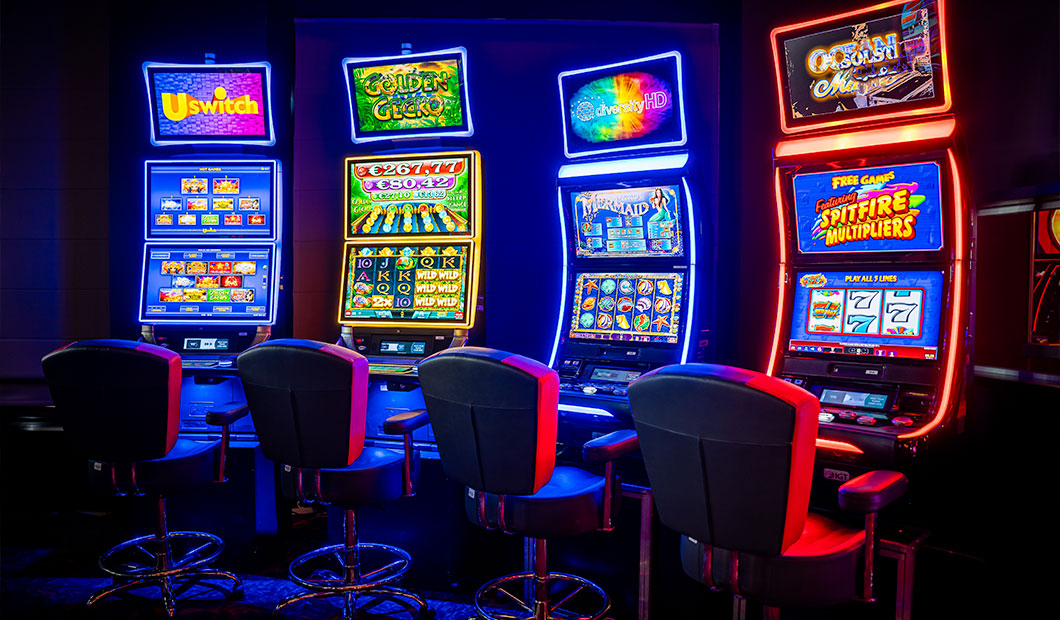A Mystique of Gambling Beliefs

In the world of gambling, where chance and strategy intersect, a unique tapestry of beliefs unfolds—one that weaves together luck, fate, and the enigmatic nature of casino games. Casinos, bustling with excitement and anticipation, are not just spaces for placing bets; they are also arenas in which superstitions thrive. Ranging from the novice player to the seasoned gambler, these mysterious practices often shape how individuals approach the games they play, holding the belief that their actions can influence the outcome in ways that go beyond mere probability.
When players gather around roulette wheels, blackjack tables, and slot machines, the atmosphere is thick with stories of lucky charms, rituals, and codified behavior that defy logic yet provide a sense of comfort. Whether it’s wearing a specific outfit, following a particular sequence of bets, or even avoiding certain numbers, the attachment to various superstitions reflects a deep-rooted desire to manipulate the uncontrollable. This article delves into the captivating world of casino game superstitions, examining the beliefs that both entertain and mystify those who dare to play.
Cultural Beginnings of Superstitions
Casino activities have long been entwined with an variety of superstitions that can be traced to ancient civilizations. The roots of these notions can be associated to humanity’s intrinsic wish to control the random outcomes related with fortune and chance. In primitive civilizations, activities of uncertainty were often connected to spiritual practices. Gamblers would call upon favor or request favor from spirits, believing that their actions could change the outcomes in their benefit. This foundation laid the basis for the myriad of superstitions that spread as casino games evolved over time.
During the medieval age, betting became a common hobby across the continent, and with it, a diverse tapestry of superstitions emerged. Participants adopted different rituals and charms, believing they could influence the consequences of games. The importance of numbers, in particular, started to show in superstitions around card games and dice. The number 7 was often considered lucky, while other numbers carried unfortunate connotations. These ideas mirrored the societal contexts of the time, changing as they passed through generations and transformed to new gaming environments.
As casinos developed in the seventeenth century, particularly in Italy and France, the atmosphere surrounding betting became steeped in mystique. The growing openness of casino games allowed for the dissemination and diversification of superstitions among players. Concepts like charmed charms, specific seating locations, and rituals gained prevalence, creating a distinct culture within betting houses. As these customs continued to thrive, they became essential to the identity of gambling games, illustrating how historical developments and tradition shape the notions that influence how players engage with luck.
Popular Casino Myths
Superstitions surrounding casino activities are plentiful and diverse, reflecting the dreams and fears of gamblers as they engage in random games. One of the most common views is that specific numbers bring fortune or bad luck. For example, the number 7 is often seen as a lucky digit, frequently sought after by gamblers looking for a favorable result. Conversely, the digit thirteen is routinely considered unlucky, leading many gamblers to steer clear of it during their gaming periods.
Another common belief relates to rituals that gamblers believe can influence their chances. It could be blowing gently on the dice before a throw, using a particular hand to place a bet, or even putting on particular items of clothing, many individuals feel that these rituals can sway luck in their benefit. These rituals offer a feeling of control in an otherwise unpredictable environment, strengthening the idea that fortune can be manufactured through individual beliefs and customs.
Lastly, the environment and vibe of the gambling house itself contributes to myths. Many players suggest that the presence of specific symbols, such as four-leaved clovers or lucky coins, can enhance their odds of winning. Additionally, gamblers might hold to the notion that victory streaks can be halted by mundane events, such as someone passing by or a accident at the table. The collective environment in a casino can amplify these beliefs, creating a shared culture of superstitions that transcends individual experiences.
Impact of Superstitions on Players
Superstitions play a important role in the mindset of casino players, often affecting their behavior and decision-making. thể thao 99ok Numerous gamblers believe that luck can be manipulated through various rituals, such as wearing a lucky charm, choosing particular hues, or avoiding certain numbers. This dependence on superstitions can create a sense of control in an environment that is inherently unpredictable. 99ok Players often feel more confident and engaged when they think that their actions could sway the outcome of a game in their favor.
The influence of these superstitions extends beyond singular players, affecting the general atmosphere inside the casino. For example, a player who believes in the luck of a certain slot machine might attract a crowd, as others are intrigued by their apparent success. This collective belief can heighten excitement and create a lively environment, leading to an interesting experience even for those who may not necessarily be believers themselves. The excitement around specific games can lead to higher participation and extended playing sessions, supporting the casino’s lively social scene.
In some cases, superstitions can lead to detrimental effects for players. Depending too heavily on rituals can result in bad gambling decisions, as some may ignore basic strategies in favor of unfounded beliefs. Additionally, the stress to perform rituals may increase anxiety and tension, diminishing from the enjoyment of the experience. Ultimately, while superstitions can enhance the thrill of playing casino games, they can also lead to poor choices that overshadow the fun and entertainment intended in the casino experience.
